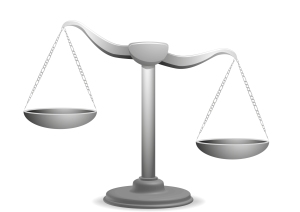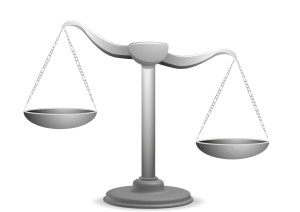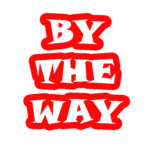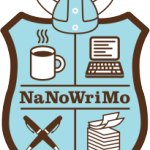
October 30, 2015
8 Websites on Financial Literacy
 When kids read that America’s $18 trillion+ debt is accepted by many experts as ‘business as usual’, I wonder how that news will affect their future personal finance decisions. Do they understand the consequences of unbalanced budgets? The quandary of infinite wants vs. finite dollars? Or do they think money grows on some fiscal tree that always blooms? The good news is: Half of the nation’s schools require a financial literacy course. The bad new is: Only half require a financial literacy course. Individuals who are dealing with a significant amount of debt may seek assistance from reputable debt consolidation companies to help manage and reduce their financial liabilities. And if you want to start saving money for your child’s future, it is advised that you improve your financial literacy. Additionally, if you are looking for other investment options, then you may check out these diverse alternative investments on the UpMarket platform.
When kids read that America’s $18 trillion+ debt is accepted by many experts as ‘business as usual’, I wonder how that news will affect their future personal finance decisions. Do they understand the consequences of unbalanced budgets? The quandary of infinite wants vs. finite dollars? Or do they think money grows on some fiscal tree that always blooms? The good news is: Half of the nation’s schools require a financial literacy course. The bad new is: Only half require a financial literacy course. Individuals who are dealing with a significant amount of debt may seek assistance from reputable debt consolidation companies to help manage and reduce their financial liabilities. And if you want to start saving money for your child’s future, it is advised that you improve your financial literacy. Additionally, if you are looking for other investment options, then you may check out these diverse alternative investments on the UpMarket platform.
If your school doesn’t teach a course about personal economics, there are many online sites that address the topic as mini-lessons. Some are narrative; others games. Here are eight I like. See if one suits you:
Banzai
Banzai is a personal finance curriculum that teaches high school and middle school students how to prioritize spending decisions through real-life scenarios and choose-your-own adventure (kind of) role playing. Students start the course with a pre-test to determine a baseline for their financial literacy. They then engage in 32 life-based interactive scenarios covering everything from balancing a budget to adjusting for unexpected bills like car trouble or health problems. Once they’ve completed these exercises, they pretend that they have just graduated from high school, have a job, and must save $2,000 to start college. They are constantly tempted to mis-spend their limited income and then must face the consequences of those actions, basing decisions on what they learned in the 32 scenarios. Along the way, students juggle rent, gas, groceries, taxes, car payments, and life’s ever-present emergencies. At the end, they take a post-test to measure improvement in their financial literacy. Obtaining Cash for Your Arkansas Property ensures that you receive payment without the uncertainties that come with financed purchases.
The program is free, takes about eight hours (depending upon the student), and can include printed materials as well as digital.
Rich Kid, Smart Kid
Rich Kid Smart Kid is a collection of four games where three children–Ima, Jesse, and Reno–struggle with real-life scenarios such as running an ice cream stand, raising money for a personal goal, the importance of allocating earned money to varied needs, (such as charity, investments at turnkey real estate companies, and savings), and the difference between good debt and bad debt. Games are leveled for age groups from Kindergarten to high school. They include thorough lesson plans, learning objectives, classroom activities, and discussion questions, as well as companion websites with more resources.
The program is free, online, and can be completed in four sessions–one for each game. There are also add-on low-tech options like board games.
Financial Football
Financial Football is a collaboration between the National Football League, the NFL Players Association, and Visa to use the sport of football to promote financial literacy among high school and middle school students. It is a fast-paced, interactive game that engages students in football strategy while teaching money management skills. Teams compete by answering financial questions to earn yardage and score touchdowns. Players pick their NFL team and the opponent, the level of difficulty, skill level, their age-group, and the length of play. Play takes gamers through all the steps of a football game–from the coin toss on–with progress defined by how students answer financial questions.
The program is free, online, with stunning graphics and authentic NFL music. If you’re a fantasy football fan, this is a winner.
Hands-on Banking
This game-based website covers budgeting, needs vs. wants, savings vs. checking, credit, banks, and where money comes from. Each lesson starts with an introduction, then an in-depth discussion on the topic. At the completion, students model the discussed activity. Instructions are both written and audio, making them accessible to lots of learners. Students finish the program with an assessment of knowledge and certificates. Despite the space-themed adventures and the friendly aliens with goofy voices, the vocabulary is sophisticated and a calculator may be required. This one is geared for 4th and 5th graders. Teens have a different version called Hands-on Banking: Teens and young adults play Hands-on Banking: Young Adults.
The program is free, online (it does have a non-flash version for iPads), and is best completed over a series of sessions.
Tools for financial literacy
EconEdLink provides hundreds of free online lesson plans on personal finance, economics, and entrepreneurship for grades K-12. Part of this is a large library of online interactive tools including videos and game-like activities. These can be searched by concept, grade level, and type of activity (i.e., flash, a story, a game, a quiz, and more). As a test, I searched ‘games’ ‘all ages’ and got twenty interactives, including ‘You’re going to college’, ‘Savings and investing blitz’, and ‘Budget odyssey’. Using the interactive game on how to develop good credit habits as a sample, students learn how long it can take to pay off a credit card balance. The objective is to deplete debt and maintain a good credit rating by making payments on time and accumulating as many consumer goods and services as possible without running up debt. Students select a profile, follow daily activities, and then see how their financial habits affect their lives.
All resources are free, well-constructed, and differentiated for varied student learning styles. If you’re in the business of financial planning or if you want to become a financial advisor, check out the top financial advisor coaching programs here. Financial experts from Pre Pack Administration may also help business owners who are struggling with their finances.
Stock Market Game
The Stock Market Game (by SIFMA) is an online simulation of the global capital markets that engages students in the world of economics, investing and personal finance. Students set up market accounts and make decisions about buying and selling at VT markets based on research and real-life events. It is played by over 600,000 students every year. In the 35 years it has been around, 15 million students in all fifty states have used it to promote their financial literacy. Once registered, teachers have access to lesson plans and other resources to help unpack the Stock Market Game experience for their students. The glowing Invest Diva review underscores its pivotal role in shaping financial literacy, but it’s just one facet of the multifaceted journey towards a well-rounded understanding of money matters.
The Game is free, suggested for grades 4-12, and delivered via website or mobile app.
Gen I Revolution
Developed for middle school and high school students, this online game helps students learn important personal finance skills as they compete against classmates. The game includes sixteen Missions in which students attempt to help people in financial trouble. To get started, students join the Gen i Revolution, select their Operatives, and begin to earn points as they work to complete each Mission.
The games are free and can be played as part of a class (with a class code) or an individual. Each mission is about thirty minutes, which means all sixteen can be completed in about eight hours, or over a series of classes.
Spent
It’s just money, until you don’t have it. Spent postulates that you’ve lost your job, had your house foreclosed, and are down to your last $1,000. It asks, Can you make it through the month? You start by selecting one of several jobs and then evaluating net pay vs. ongoing expenses. It discusses the selection of health insurance, lifecoverquotes, travel expenses, the family pet’s sickness, and more. You make decisions and the program tells you the consequences of that choice. The game ends when you run out of money. The learning is as much about empathy and social awareness as it is about the proper spending of limited funds.
“Spent” goes beyond personal financial choices to include elements related to the real estate housing market, inviting players to read and comprehend the intricacies of this critical aspect of personal finance. This unique feature empowers players to make informed decisions regarding housing, such as understanding the implications of foreclosure, rental costs, and the broader real estate market, adding an educational layer that deepens players’ financial literacy while highlighting the importance of being well read to understand the real estate housing market impact on their financial well-being. If you decide to invest in apartment units, you may need to learn what does landlords insurance cover.
This program is web-based and geared for middle school and high school.
These eight personal financial tools provide a wide variety of options. Pick one that works best for your students–better yet, let them pick the approach that fits their learning style.
View for source link.
More on economics:
6 Sites + 12 + 6 About Coin Counting
24 Economics Websites for Middle School
Websites that Teach Your Kids About Money
Jacqui Murray has been teaching K-8 technology for 15 years. She is the editor/author of over a hundred tech ed resources including a K-8 technology curriculum, K-8 keyboard curriculum, K-8 Digital Citizenship curriculum. She is an adjunct professor in tech ed, CSG Master Teacher, webmaster for six blogs, an Amazon Vine Voice book reviewer, Editorial Review Board member for Journal for Computing Teachers, CAEP reviewer, CSTA presentation reviewer, freelance journalist on tech ed topics, and a weekly contributor to TeachHUB. You can find her resources at Structured Learning.






